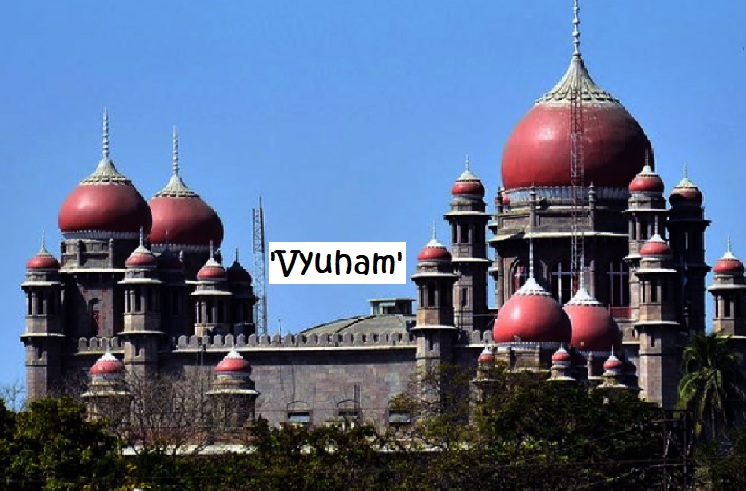


In a recent legal development, the Telangana High Court has adjudicated on a matter concerning the certification for public exhibition of the Telugu film "Vyuham." The case was brought before Justice Surepalli Nanda by M/s Ramadhuta Creations, a prominent player in the Telugu Film Industry, primarily involved in distribution and production. The proprietor, Dasari Kiran Kumar, filed a Writ Petition seeking the court's intervention in the certification process.
The heart of the matter revolves around the petitioner's application for certification for public exhibition of their Telugu film "Vyuham." According to the petitioner, the movie production concluded in the year 2023, following which they promptly applied for certification from The Central Board of Film Certification (CBFC) on October 19, 2023. Subsequently, on October 20, 2023, a comprehensive application, adhering to the Cinematograph Certification Rules of 1983, was submitted.
However, the petitioner received communication from the CBFC Chairperson, stating that the movie had been referred to the Revising Committee as of November 1, 2023. The petitioner, dismayed by the perceived delay in the certification process, approached the High Court with a Writ Petition.
In response to the petition, Justice Surepalli Nanda expressed the opinion that the stage had not been reached where the application for public exhibition of the film "Vyuham" could be denied. The court deemed that the matter was currently under consideration by the Revising Committee and, therefore, disposed of the Writ Petition with a directive for the Revising Committee to promptly consider the petitioner's application for certification for public exhibition.
The petitioner's argument centered around the assertion that they had been commissioned to produce the movie and had duly completed it in 2023. They followed the prescribed procedures by submitting their certification application to the CBFC. However, the petitioner claimed that despite their efforts and representations to the regional office of the CBFC, the Revising Committee had not been constituted as of the date of filing the petition on November 23, 2023.
In their initial prayers, the petitioner sought a declaration that the actions of the CBFC in referring the certification application to the Revising Committee, citing the impending state elections, were illegal, arbitrary, and unconstitutional. They urged the court to set aside these actions and direct the CBFC to grant the certificate for public exhibition.
Alternatively, the petitioner requested that the court direct the Revising Committee to scrutinize and approve their certification application within a reasonable period. During the course of the proceedings, the petitioner chose to press only the alternative prayer, focusing on expeditious consideration by the Revising Committee.
The Counsel representing the CBFC contended that the referral to the Revising Committee was justified under rule 24(1) of the Cinematograph Rules. They explained that the delay in constituting the Revising Committee was attributed to the Model Code of Conduct in place due to state elections. The CBFC expressed concerns that the movie, with its 'controversial' take on Andhra Pradesh politics, could potentially influence the state elections. The counsel asserted that the Revising Committee would be formed after November 30, 2023, once the Model Code of Conduct was no longer applicable.
In summary, the legal proceedings involve a delicate balance between the petitioner's rights to timely certification for public exhibition of their film and the CBFC's concerns regarding potential election influence. The court, in its directive, has emphasized the need for the Revising Committee to promptly consider the certification application, recognizing the significance of a fair and timely resolution in the context of the film industry and its engagements with regulatory bodies. The complexities arising from the Model Code of Conduct during state elections add an additional layer to the case, marking it as a legal matter with broader implications beyond the immediate concerns of the petitioner and the film "Vyuham."
TAGS: Model Code of Conduct State elections Legal proceedings Constitutional validity Illegal and arbitrary actions